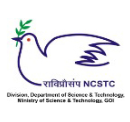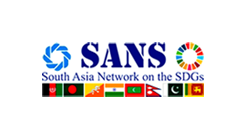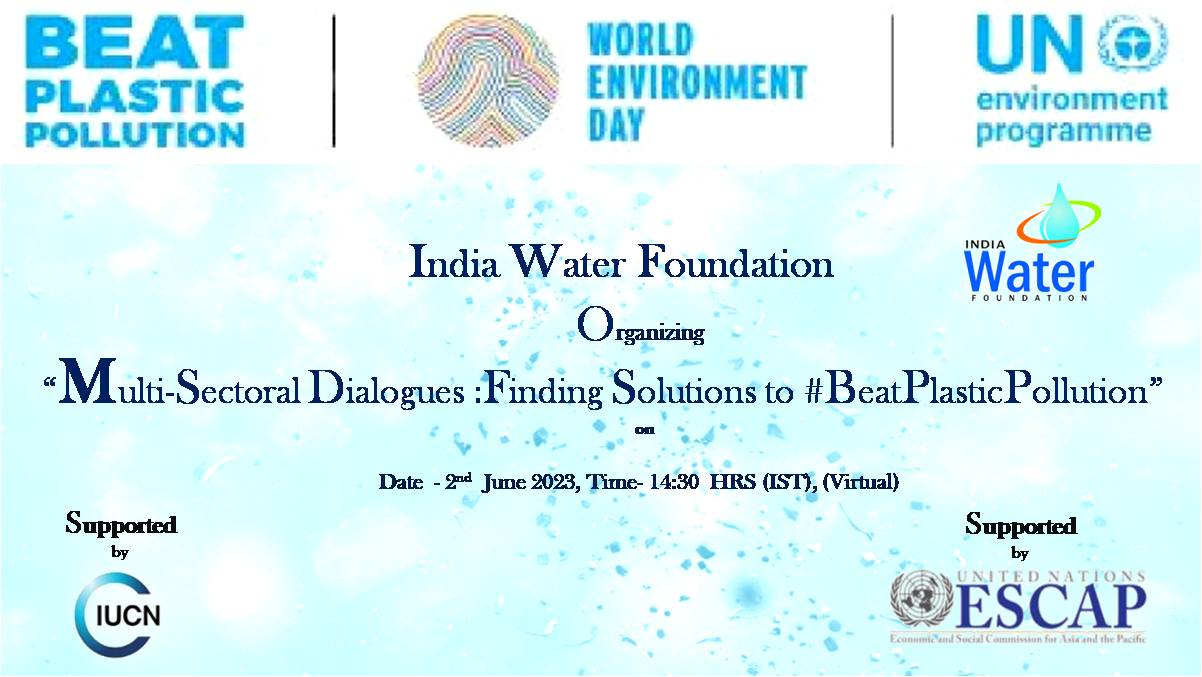Topic: ‘‘Multi-Sectoral Dialogues : Finding Solutions to Beat Plastic Pollution”
Webinar ID: 899 7405 8320
Passcode: 275511
To Join the Webinar Click Here
INTRODUCTION
On 5 June every year, the World celebrates World Environment Day. This year, the theme of the Day is “Beat plastic pollution” – a call for action for the world to work together to address one of the great environmental challenges of our time and raise global awareness of the need to reduce the heavy burden of plastic pollution on people’s health and the threat it poses to the environment and wildlife. Humanity produces more than 430 million tonnes of plastic annually, two-thirds of which are short-lived products that soon become waste, filling the ocean and, often, working their way into the human food chain. While the world has derived great benefit from the use of plastics, which have transformed people’s everyday lives, the negative ecological effects and adverse impact on health from their misuse and overuse cannot be overlooked. Many people aren’t aware that a material that is embedded in our daily life can have significant impacts not just on wildlife, but on the climate and on human health. Plastic remains in the environment for a long time, it cannot biodegrade, only break down into smaller and smaller pieces.
The economic damage caused by plastic waste is vast. Plastic litter in the Asia-Pacific region alone costs its tourism, fishing and shipping industries $1.3 billion per year. In Europe, cleaning plastic waste from coasts and beaches costs about €630 million per year. Studies suggest that the total economic damage to the world’s marine ecosystem caused by plastic amounts to at least $13 billion every year. The economic, health and environmental reasons to act are clear.
OBJECTIVE
In 2022, UN Member States agreed on a resolution to end plastic pollution. An Intergovernmental Negotiating Committee is developing a legally binding instrument on plastic pollution, with the aim of having it finalized by the end of 2024. While this progress is good news, current commitments by governments and industry are not enough Countries need to encourage innovation and provide incentives to businesses that do away with unnecessary plastics. Taxes are needed to deter the production or use of single-use plastic products, while tax breaks, subsidies and other fiscal incentives need to be introduced to encourage alternatives, such as reusable products. Waste management infrastructure must also be improved. Multi-stakeholder and inter-sectoral partnerships should be promoted to address this grave issue. This event will provide a platform to share analysis and experiences with the aim of developing guidance to enhance co-operation, partnerships, policy coherence and sustainable financing solutions to address and prevent plastics pollution.
SPEAKERS
Eminent Speaker |
|
| Dr. Arvind Kumar |
Mr. Erik Solheim |
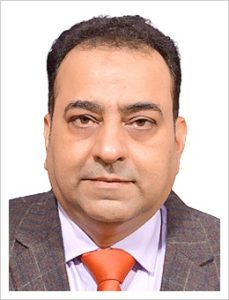 Dr. Arvind Kumar is a strategist and key-influencer in development sector with more than 28 years of experience as an author, columnist, Water activist, and specializes in concepts like ecosystem-based adaptation, water-energy-food nexus, with specific emphasis on Transversal approach of inter-linkages between water, environment and SDGs. He has published over 500 plus research articles and several books. He is a proud recipient of Achievers Award for his contribution to the Environment from International Human Rights Organization in collaboration with United Nations Information Centre, India. Dr. Arvind Kumar is a strategist and key-influencer in development sector with more than 28 years of experience as an author, columnist, Water activist, and specializes in concepts like ecosystem-based adaptation, water-energy-food nexus, with specific emphasis on Transversal approach of inter-linkages between water, environment and SDGs. He has published over 500 plus research articles and several books. He is a proud recipient of Achievers Award for his contribution to the Environment from International Human Rights Organization in collaboration with United Nations Information Centre, India. |
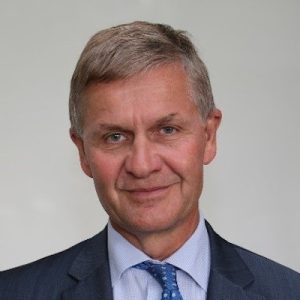 Mr.Erik Solheim is a well-known global leader on environment and development as well as an experienced peace negotiator. He served as Norwegian minister of Environment and International Development from 2005-2012. Erik was the Executive Chair of the OECD Development Assistance Committee (the main body of world donors) from 2012-2016 and Executive Director of UN Environment from 2016 to 2018. Currently he is senior adviser at World Resources Institute and President of the Belt and Road Green Development Institute in Beijing. Erik is Chief Mentor of Global Alliance for Sustainable Planet and Chairman of the Board of Afroz Shah Foundation in Mumbai. He is adviser to April, the world´s largest paper and Pulp Company in Indonesia, to Aker Horizons, Norway’s leading green industry corporation and to Norwegian electric battery company Morrow. He serves as chairman of the development roundtable in Green Hydrogen Organization and as a board member of International Hydropower Association. He is co chair of Treelion a green block chain company in Hong Kong. Mr.Erik Solheim is a well-known global leader on environment and development as well as an experienced peace negotiator. He served as Norwegian minister of Environment and International Development from 2005-2012. Erik was the Executive Chair of the OECD Development Assistance Committee (the main body of world donors) from 2012-2016 and Executive Director of UN Environment from 2016 to 2018. Currently he is senior adviser at World Resources Institute and President of the Belt and Road Green Development Institute in Beijing. Erik is Chief Mentor of Global Alliance for Sustainable Planet and Chairman of the Board of Afroz Shah Foundation in Mumbai. He is adviser to April, the world´s largest paper and Pulp Company in Indonesia, to Aker Horizons, Norway’s leading green industry corporation and to Norwegian electric battery company Morrow. He serves as chairman of the development roundtable in Green Hydrogen Organization and as a board member of International Hydropower Association. He is co chair of Treelion a green block chain company in Hong Kong. |
| Mr. Avinash Mishra |
Mr. Atul Bagai |
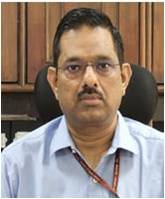 Mr. AVINASH MISHRA is Adviser (Water and Land Resources, Environment, Forests & Climate Change) of NITI Aayog (GOI).With an experience of 33years in Water Resources sector he has been working on the National Policy Planning formulation, Action Plans of the country, making Development Plans, proposals for the State Governments. He is Member of various Committees on Water Resources including the Committee on Water Resources of Bureau of Indian Standards. Mr. AVINASH MISHRA is Adviser (Water and Land Resources, Environment, Forests & Climate Change) of NITI Aayog (GOI).With an experience of 33years in Water Resources sector he has been working on the National Policy Planning formulation, Action Plans of the country, making Development Plans, proposals for the State Governments. He is Member of various Committees on Water Resources including the Committee on Water Resources of Bureau of Indian Standards. |
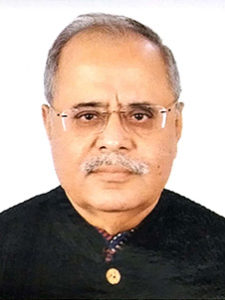 Mr. Atul Bagai joined UN Environment’s Ozone Action programme under the Montreal Protocol as the Regional Officer for South Asia in 2000 and served as Senior Regional Coordinator to build the capacity of subregional networks in Asia and enable them to meet the compliance targets under the Montreal Protocol. In that capacity, he spearheaded and led some innovative initiatives with the Executive Committee of the Multilateral Fund. He was instrumental in designing and developing synergies between Ozone Depleting Substance phase out and climate change in Maldives and Bhutan; green procurement policies in Mongolia taking into account phase-out of Ozone Depleting Substance as a legislation; a study of carbon credits and Ozone Depleting Substance destruction in Nepal; and, most recently, the hydro-chloro-fluoro-carbon phase-out plan for India that included energy efficiency and the cold chain. Prior to joining UN Environment, he worked with the Government of India for 17 years in a number of senior positions. Mr. Atul Bagai joined UN Environment’s Ozone Action programme under the Montreal Protocol as the Regional Officer for South Asia in 2000 and served as Senior Regional Coordinator to build the capacity of subregional networks in Asia and enable them to meet the compliance targets under the Montreal Protocol. In that capacity, he spearheaded and led some innovative initiatives with the Executive Committee of the Multilateral Fund. He was instrumental in designing and developing synergies between Ozone Depleting Substance phase out and climate change in Maldives and Bhutan; green procurement policies in Mongolia taking into account phase-out of Ozone Depleting Substance as a legislation; a study of carbon credits and Ozone Depleting Substance destruction in Nepal; and, most recently, the hydro-chloro-fluoro-carbon phase-out plan for India that included energy efficiency and the cold chain. Prior to joining UN Environment, he worked with the Government of India for 17 years in a number of senior positions. |
| Dr. Rajan Sudesh Ratna | Mr. Hitesh Vaidya |
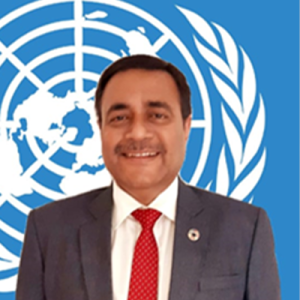 Dr. Rajan Sudesh Ratna is a Ph. D. in Economics from Indian Institute of Foreign Trade, New Delhi, India; M. Phil. in Environmental Science from Jawaharlal Nehru University, New Delhi and done an Executive Programme on Trade Policy and Negotiations from Harvard University, Boston, USA. Presently working as Deputy Head of South and South-West Office of UN ESCAP, New Delhi since August 2018 and leading research, policy advisory and capacity building on helping countries accelerate progress towards achieving the Sustainable Development Goals. Dr. Rajan Sudesh Ratna is a Ph. D. in Economics from Indian Institute of Foreign Trade, New Delhi, India; M. Phil. in Environmental Science from Jawaharlal Nehru University, New Delhi and done an Executive Programme on Trade Policy and Negotiations from Harvard University, Boston, USA. Presently working as Deputy Head of South and South-West Office of UN ESCAP, New Delhi since August 2018 and leading research, policy advisory and capacity building on helping countries accelerate progress towards achieving the Sustainable Development Goals. |
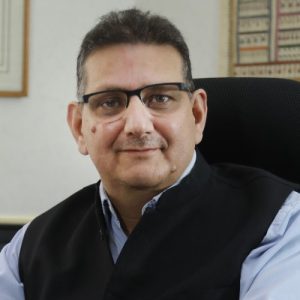 Mr. Hitesh Vaidya, Director, National Institute of Urban Affairs, has more than 25 years of broad-based experience on policy, project formulation, implementation and program management. He has been engaged primarily on UN, World Bank, U.S. Agency for International Development (USAID) assignments. The areas he has been associated with are urban development, urban governance and urban Infrastructure management. Poverty Alleviation has been an integral component in all his assignments. Prior to joining National Institute of Urban Affairs, Hitesh Vaidya was holding the position of Country Representative of UN-Habitat India. He has been intensely involved in supporting an ecosystem to design and roll-out urban flagship missions in India. Mr. Hitesh Vaidya, Director, National Institute of Urban Affairs, has more than 25 years of broad-based experience on policy, project formulation, implementation and program management. He has been engaged primarily on UN, World Bank, U.S. Agency for International Development (USAID) assignments. The areas he has been associated with are urban development, urban governance and urban Infrastructure management. Poverty Alleviation has been an integral component in all his assignments. Prior to joining National Institute of Urban Affairs, Hitesh Vaidya was holding the position of Country Representative of UN-Habitat India. He has been intensely involved in supporting an ecosystem to design and roll-out urban flagship missions in India. |
| Ms. Maeve Nightingale | Dr. Pema Gyamtsho |
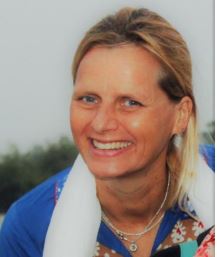 Ms. Maeve Nightingale is a Senior Programme Officer Coastal and Marine from the Science and Strategy Group – Asia, IUCN as well as regional focal point for gender equality and HRBA. She holds a BSc in Marine science (University of London) and MSc in Fisheries and Aquaculture (University Bangor) and has 24 years international experience working with International Development Organizations. Her work focuses specifically on addressing the multiple issues associated with sustainable coastal resource management, including Disaster Risk Reduction and climate change mitigation and adaptation, through resilience building and integrated coastal management policy and practice, across South and Southeast Asian countries. Ms. Maeve Nightingale is a Senior Programme Officer Coastal and Marine from the Science and Strategy Group – Asia, IUCN as well as regional focal point for gender equality and HRBA. She holds a BSc in Marine science (University of London) and MSc in Fisheries and Aquaculture (University Bangor) and has 24 years international experience working with International Development Organizations. Her work focuses specifically on addressing the multiple issues associated with sustainable coastal resource management, including Disaster Risk Reduction and climate change mitigation and adaptation, through resilience building and integrated coastal management policy and practice, across South and Southeast Asian countries. |
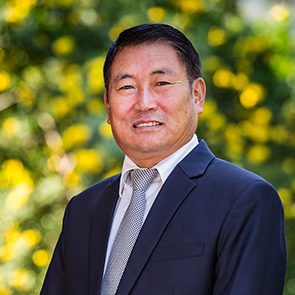 Dr. Pema Gyamtsho is the Director General of ICIMOD. He has served the Royal Government of Bhutan for over three decades in natural resources management and planning, rural development, agriculture, forestry, livestock and food production, rangeland management, livestock development, participatory approaches, research and extension institutional building, climate change and environmental protection, biodiversity conservation and organic farming. He also previously had led ICIMOD efforts in policy and partnerships and regional rangeland management work. In his previous role as Minister of Agriculture and Forests, he was involved and often led to the enactment of over 60 pieces of legialation and throughout his career he has also worked at the graassroot level where he was overseeing the formation of over 400 farmers groups and cooperatives. He holds a PhD in Natural Science from the Swiss Federal Institute of Technology, Zurich. Dr. Pema Gyamtsho is the Director General of ICIMOD. He has served the Royal Government of Bhutan for over three decades in natural resources management and planning, rural development, agriculture, forestry, livestock and food production, rangeland management, livestock development, participatory approaches, research and extension institutional building, climate change and environmental protection, biodiversity conservation and organic farming. He also previously had led ICIMOD efforts in policy and partnerships and regional rangeland management work. In his previous role as Minister of Agriculture and Forests, he was involved and often led to the enactment of over 60 pieces of legialation and throughout his career he has also worked at the graassroot level where he was overseeing the formation of over 400 farmers groups and cooperatives. He holds a PhD in Natural Science from the Swiss Federal Institute of Technology, Zurich. |
| Ms. Martina Burkard | Ms. Shweta Tyagi |
 Ms. Martina Burkard, Project Director, GIZ Ms. Martina Burkard, Project Director, GIZ |
 Ms. Shweta Tyagi is Chief Functionary, India Water Foundation. She is results-focused development sector professional with a 20 years of demonstrated history and a proven ability to manage project teams to deliver multiple projects and programmes across diverse sectors of sustainable Development, Water and Sanitation, Social Development, Livelihood Generation, climate change etc. Excellent knowledge of project management and strategic planning of partnership creation and coordination, as well as advising decision-makers and strengthening capacities. Experience of Natural Resource management among rural communities for implementing community based projects with an objective towards strengthening sustainable livelihoods. Ms. Shweta Tyagi is Chief Functionary, India Water Foundation. She is results-focused development sector professional with a 20 years of demonstrated history and a proven ability to manage project teams to deliver multiple projects and programmes across diverse sectors of sustainable Development, Water and Sanitation, Social Development, Livelihood Generation, climate change etc. Excellent knowledge of project management and strategic planning of partnership creation and coordination, as well as advising decision-makers and strengthening capacities. Experience of Natural Resource management among rural communities for implementing community based projects with an objective towards strengthening sustainable livelihoods. |



